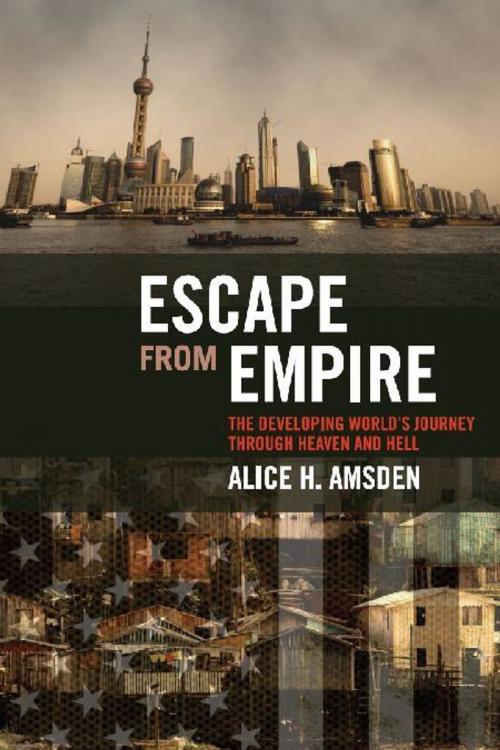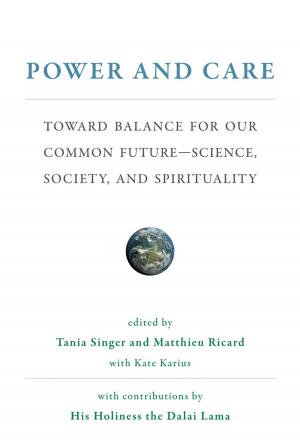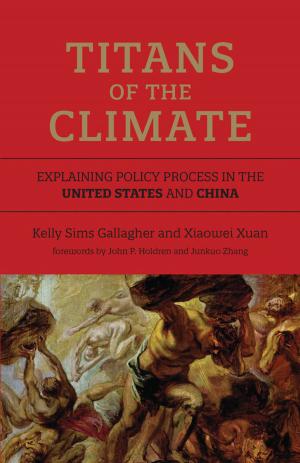Escape from Empire
The Developing World's Journey through Heaven and Hell
Business & Finance, Economics, Economic Development, Economic History| Author: | Alice H. Amsden | ISBN: | 9780262261494 |
| Publisher: | The MIT Press | Publication: | September 18, 2009 |
| Imprint: | The MIT Press | Language: | English |
| Author: | Alice H. Amsden |
| ISBN: | 9780262261494 |
| Publisher: | The MIT Press |
| Publication: | September 18, 2009 |
| Imprint: | The MIT Press |
| Language: | English |
A provocative view of economic growth in the Third World argues that the countries that have achieved steady economic growth—including future economic superpowers India and China—have done so because they have resisted the American ideology of free markets.
The American government has been both miracle worker and villain in the developing world. From the end of World War II until the 1980s poor countries, including many in Africa and the Middle East, enjoyed a modicum of economic growth. New industries mushroomed and skilled jobs multiplied, thanks in part to flexible American policies that showed an awareness of the diversity of Third World countries and an appreciation for their long-standing knowledge about how their own economies worked. Then during the Reagan era, American policy changed. The definition of laissez-faire shifted from "Do it your way," to an imperial "Do it our way." Growth in the developing world slowed, income inequalities skyrocketed, and financial crises raged. Only East Asian economies resisted the strict prescriptions of Washington and continued to boom. Why?
In Escape from Empire, Alice Amsden argues provocatively that the more freedom a developing country has to determine its own policies, the faster its economy will grow. America's recent inflexibility—as it has single-mindedly imposed the same rules, laws, and institutions on all developing economies under its influence—has been the backdrop to the rise of two new giants, China and India, who have built economic power in their own way. Amsden describes the two eras in America's relationship with the developing world as "Heaven" and "Hell"—a beneficent and politically savvy empire followed by a dictatorial, ideology-driven one. What will the next American empire learn from the failure of the last? Amsden argues convincingly that the world—and the United States—will be infinitely better off if new centers of power are met with sensible policies rather than hard-knuckled ideologies. But, she asks, can it be done?
A provocative view of economic growth in the Third World argues that the countries that have achieved steady economic growth—including future economic superpowers India and China—have done so because they have resisted the American ideology of free markets.
The American government has been both miracle worker and villain in the developing world. From the end of World War II until the 1980s poor countries, including many in Africa and the Middle East, enjoyed a modicum of economic growth. New industries mushroomed and skilled jobs multiplied, thanks in part to flexible American policies that showed an awareness of the diversity of Third World countries and an appreciation for their long-standing knowledge about how their own economies worked. Then during the Reagan era, American policy changed. The definition of laissez-faire shifted from "Do it your way," to an imperial "Do it our way." Growth in the developing world slowed, income inequalities skyrocketed, and financial crises raged. Only East Asian economies resisted the strict prescriptions of Washington and continued to boom. Why?
In Escape from Empire, Alice Amsden argues provocatively that the more freedom a developing country has to determine its own policies, the faster its economy will grow. America's recent inflexibility—as it has single-mindedly imposed the same rules, laws, and institutions on all developing economies under its influence—has been the backdrop to the rise of two new giants, China and India, who have built economic power in their own way. Amsden describes the two eras in America's relationship with the developing world as "Heaven" and "Hell"—a beneficent and politically savvy empire followed by a dictatorial, ideology-driven one. What will the next American empire learn from the failure of the last? Amsden argues convincingly that the world—and the United States—will be infinitely better off if new centers of power are met with sensible policies rather than hard-knuckled ideologies. But, she asks, can it be done?















